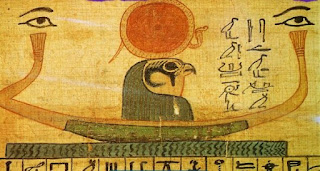Saturday, May 27, 2023: Review of Richard Modiano's "The Forbidden Lunchbox"
If there is no part of you unfulfilled by
stock options and prime time programming and
cutting edge digital technology –
then perhaps these poems are not for you
(From “Notes to Self”, Richard Modiano)
It’s not often you find a warning label in a poetry book; it’s refreshing, and sometimes necessary. To be honest, poetry is not for everyone, especially poetry that champions the causes of those who are not socially/economically/racially privileged, that’s also political, passionate, and deeply personal. Richard Modiano’s The Forbidden Lunchbox (© 2022 Punk Hostage Press), is all of these things.
Full disclosure: I’ve known Modiano, though not as well as I’d like to, for almost two decades. I know him as an expert haiku/senryu poet, a guy who was instrumental in steering Beyond Baroque back from the brink of financial ruin, and as a certified member of the Industrial Workers of the World. I know him as an honest, forthright, decent man, who, once committed to a cause, integrates it into himself and makes it his own. So, my pleasure at discovering what I don’t know, as well as rediscovering what I do know, makes reading The Forbidden Lunchbox a complex, thought-provoking experience.
I want to recommend the reader to regard The Forbidden Lunchbox, with a warning label that clearly doubles as an invitation, as a book of travel poetry. We always travel, through space, time, our imaginations, by car/plane/train/walking/running, or through virtual worlds built by cyber engineers. As we travel through our days, our personal landscapes are marked by people and events that become signposts to point us in the direction of discovering who each of us really is/could be.
The Forbidden Lunchbox is not a package holiday or a booze cruise. It’s more like backpacking through the world with a poetic Buddha, who, as the story goes, on his way to enlightenment, left behind the artifice of wealth and power, and went out into the real, and savagely beautiful world of people. Modiano takes the reader into bars to meet those who want to get lucky (“At the Rainbow Bar and Grill”), and coffee shops (“Comrade''), where fellow conspirators recognise each other by their shared ideology; through the aftereffects of the bombings of Hiroshima and Nagasaki (“Peace Plaza,Hiroshima”), to relationships with strangers (“Gaijin”), as well as friends (“Poem for Rob Plath”), and loved ones (“Drops fall”, and “Poem for Zoë Tamerlis"); and his objections, and warnings over our country’s increasing trend toward accepting authoritarian rule (“Maga Maga”, “Trumpenvolk”, and “Endgame”).
There’s enough variety of poems to keep the reader engaged, but what weaves all this diversity together is Modiano’s ability to shine a light on what the reader wouldn’t be looking for; truths a normal person won’t give more than a passing thought to. This is masterfully illustrated in Modinano’s title poem, “The Forbidden Lunchbox”, which details a visit to the Hiroshima Peace Museum that honors, as well as memorializes the innocent victims of the bombings by the United States, of Hiroshima and Nagasaki. In the museum, personal objects that belonged to those who died in the bombings are displayed for public view, and which, by order of the U.S. Congress, were not allowed to be displayed in the Smithsonian Museum:
The Forbidden Lunch Box
(Displayed in Hiroshima Peace Museum but not allowed by the US
Congress to be shown to the US public 1995 Smithsonian Institute.)
Small rectangular metal
Lunch box, charred food
Visible
Said to be a mixture of rice
Barley and soy beans
The box looks remarkably clean
Scoured by atomic fire
A little battered but otherwise
Once fitted with a new lid
Usable
Belonged to Shigeru Orimen
First-year student at Second Hiroshima Prefectural Junior High
School
He was exposed to the bomb at his building demolition work site
600 meters from the hypocenter
Every day with his classmates
He was mobilized to help with the demolition of buildings for fire
lanes
On August 6, as usual, taking the lunch his mother had prepared
He left home early in the morning
After the A-bomb fell
His mother wandered through the ruins of Hiroshima looking for
him
Early in the morning on August 9, on the bank of the HonkawaRiver
She found Shigeru's body with this lunch box held tight under his
stomach
The lunch Shigeru never ate was charred black
By order of Congress
No victims allowed--
© 2022 Richard Modiano
Travel changes us, for good and for ill. When we choose to close our eyes, and think ourselves into an illusion of safety, we deny ourselves the chance for real growth and change. Luckily, for us, poets like Modiano are here to remind us that the imperfect, cruel, and wonderful world we live in is worth exploring. That’s why this kind of travel poetry, especially Modiano’s The Forbidden Lunchbox, deserves a permanent place in every reader’s library.
The Forbidden Lunchbox, Richard Modiano © 2022 Punk Hostage Press, ISBN 978-1940213231, 97 pages, $20.
© 2023 marie c lecrivain





Comments
Post a Comment